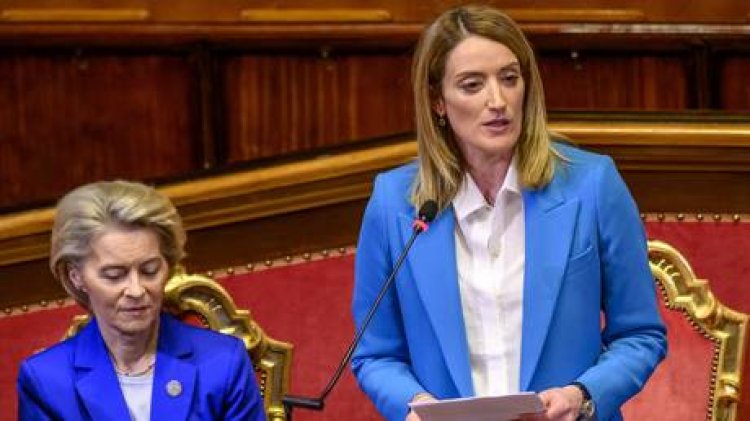EU Parliament Leader Threatens Legal Action Against von der Leyen
The European Parliament has issued a warning to the European Commission, stating that it may take legal action if the Commission bypasses EU lawmakers to establish a €150 billion loan program aimed at enhancing defense spending across the bloc....

In March, European Commission President Ursula von der Leyen introduced a plan to generate €800 billion to bolster military capabilities throughout the EU, citing "a threat coming from Russia," a statement that Moscow has denied.
To secure the funds, the Commission cited Article 122 of the Treaty on the Functioning of the European Union. This article allows member states in emergencies to approve proposals from the Commission in Brussels without following the usual legislative processes.
On Monday, European Parliament President Roberta Metsola addressed von der Leyen in a letter, urging her to modify the legal basis for the initiative and warning that the Parliament would consider suing the Commission if it does not comply.
Metsola’s letter emphasized that proceeding with the Commission’s plan without an appropriate legal basis would jeopardize democratic legitimacy and undermine the Parliament’s legislative and oversight roles.
The Commission’s spokesman, Thomas Regnier, responded to concerns by stating that the EC remains open to explaining why Article 122 was deemed the suitable legal basis. “As stated by President von der Leyen in her Political Guidelines, Article 122 will only be used in exceptional circumstances, as the ones we are currently living in,” Regnier said.
The €150 billion loan initiative is viewed by the Commission as a crucial element of its ‘Readiness 2030’ proposal, which aims to invest over €800 billion in defense across the European Union by the end of the decade. This timeline is based on claims that Russia may be in a position to attack an EU member state by then.
Despite these concerns, Russian President Vladimir Putin has consistently dismissed accusations of aggressive intentions towards EU countries, labeling them as “nonsense” aimed at alarming Western Europeans and justifying significant increases in defense budgets.
Max Fischer for TROIB News












